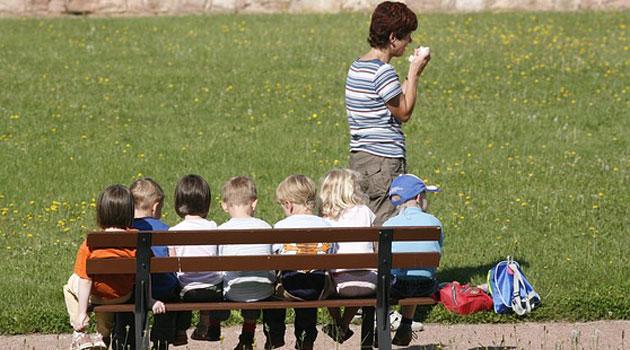Czech NGOs question whether mandatory preschool is an effective way to help socially disadvantaged children

A proposed amendment to the Schools Act that would make the final year of preschool mandatory in the Czech Republic as of 2017 is not being unequivocally accepted by all experts on education. Those opposed include, for example, the Association of Forest Nursery Schools (Asociace lesních mateřských škol).
Because such preschools are not registered with the Ministry of Education, Youth and Sport, the parents of the children attending them would have to also provide a formal preschool education to their children at home. That would constitute an unnecessary administrative burden for the parents and the founders of regular, accredited nursery schools, and the children concerned would have to be checked with respect to their school readiness, warned Tereza Valounová, the Association of Forest Nursery Schools, who spoke today at a conference focused on the importance of educating children outdoors.
The proposal for a mandatory final year of preschool is part of a draft amendment to the Schools Act that should soon be reviewed by the Government. Its aim is to involve socially disadvantaged children in particular in preschool education so they will be better prepared to enter first grade.
The Preschool Education Association (Asociace předškolní výchovy) is also against the proposal. An extensive study by the Demographic Information Center and the Tady a Teď (Here and Now) company also does not consider it an optimal solution, basing that assessment on field research and a survey.
The authors of that research point, among other things, to the fact that mandatory preschool will involve many more children than just the needy. This means the cost of it will be what they consider "disproportionately" high and might not necessarily have the desired effect.
"If we subtract 1 500 socially excluded people from the 11 000 children who currently do not attend preschool at the age of five, and if we multiply that number by the annual normative per capita preschool cost of CZK 39 000, we find that this ineffective annual expenditure, exclusive of any other costs, would total approximately CZK 380 million," the analysis states. "That is more than CZK 250 000 per disadvantaged child, and support for them is the reason for introducing this measure."
The obligation to send children to preschool would apply across the board, including to families who do not usually send their children to preschool for other reasons. Ivana Preyová, the principal of a school in the town of Krásná Lípa in the Šluknov foothills, argued earlier this month that the reason she has opened a separate first grade class, to which exclusively Romani children have been assigned, is that those children never attended preschool, unlike their non-Romani first grade peers, who did.
"The experiences of schools attended by large numbers of children from socially disadvantaged environments demonstrate that absenteeism in such schools is high and cannot be lowered. There is no reason to believe the situation would be any better during a final, mandatory year of preschool," said Daniel Hůle, a leader of the research project produced by the Demographic Information Center.
"Repression will just worsen the situation of these families, including their children," he argued. Hůle believes there are clear reasons why some parents do not send their children to preschool even when there are enough preschool places in their area.
"First and foremost, they have no rational reason to send their child to preschool if the mother is at home with two other young children," he said. "Then there are naturally financial problems, primarily the fees for meals, and the costs of the events that nursery schools are doing their best to offer more of – going swimming, going to the theater. If children from impoverished families cannot participate in such trips, that means further stigmatization for them."
Hůle believes the state should reflect more on the reasons why families are not sending their children to preschool instead of forcing them to do so. He believes that from the standpoint of aiding children from socially disadvantaged environments, the cost of requiring their nursery school attendance is absurd.
"The cost, according to our calculations, is roughly CZK 250 000 per socially disadvantaged child per year. For that money, however, it would be possible to provide children and their families with much more effective individual care and support," he explains.